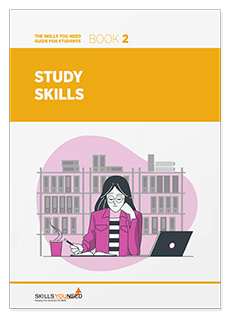7 Tips for Busy Professionals to Master a Skill
See also: Reflective PracticeWith the world changing and developing at a rapid pace, keeping up is becoming increasingly challenging. New knowledge and information come to light each day, and to stay on top of the market, professionals must be ready to learn new skills.
Mastering new skills is no longer just optional. Lifelong learning and professional development are rapidly becoming necessary tools for professional advancement and enhancing diversity in your job prospects. But let’s be honest. Once you have your career rolling, a few hobbies to keep you busy, and a family to take care of, time becomes a hot commodity. Besides technical skills, even the things you want to learn for yourself start looking impossible. And so, if you’re interested in mastering something new, doing so seems like a far-fetched dream.
Fortunately, mastering a new skill doesn’t require youth, cleverness, or good luck. With the proper approach and these seven tips, you can master any skill you want, regardless of how busy you are.

1. Do your research
The first thing you need to do to master a skill is to find out everything about it. Whether it’s a new language, basic coding, CPA/CMA, leadership tactics, or even knitting, list all the ways your new skill can help you. Focus on one skill at a time and identify your reasons for learning it.
Next, you must find out where and how you can learn the skill you’ve chosen. Online courses like those offered by Wiley Efficient Learning can provide abundant opportunities to explore and develop professional skills that are sure to advance your career. The internet has opened up a world of resources at your fingertips, and with just a few taps, you can dive into something of your interest. Once you have a better idea of which skill you want to develop and your chosen study approach, you’re ready to start learning.
2. Know your objective
Writing down your objectives and taking the time to understand them is crucial when learning a new skill. Since your busy schedule can only offer you limited hours in a day, having pre-defined goals reshifts your focus towards the skill you want to learn. These can measure outcomes to see if your learning strategy helps develop the chosen skill.
Following the SMART objectives criteria can prove highly beneficial:
Specific: Your objectives must be clear and concise rather than being vague
Measurable: Set some targets or goals for yourself that allow you to monitor progress and provide a benchmark against which you can determine success
Achievable: The objectives you define must be within reach of available resources
Relevant: They must align with the goals you have for your career advancement or personal growth
Time-bound: To prevent procrastination and to put off the work for another day, define specific timeframes within which you must achieve your goals
3. Practice what you learn
Theoretical knowledge isn’t always enough when developing a new skill. The famous proverb “practice makes perfect” is well-known for a reason. This adage holds definite truth because the act of repeatedly doing something makes you better and better at it. Intentionally reiterating your actions improves performance and can grow your novice skills to that of an expert within no time.
Since it may be challenging to carve out time in your busy schedule to practice your skill daily, consider immersing it in your routine instead. For example, if you’re learning a foreign language, converse with yourself while driving to work or at the gym. This way, you won’t have to cut back on any of your scheduled tasks and can still get your practice done.
4. Teach others
One of the best learning strategies is teaching someone else what you learn. When you invest time and effort in understanding a skill you intend to teach others, you’re likely to break into simpler and easier concepts. This approach forces you to look at the material more critically to answer any questions or concerns your pupils may have. If you’re developing a skill that may help other people in your organization, get permission from your boss and pass on the knowledge to your coworkers. Make presentations or posters, or write regular blogs to help even a layperson easily grasp what you’re learning.
5. Seek feedback
Whatever skill you plan on mastering, there are others who’ve learned it too. Find a mentor or coach to help you steer clear of dangerous pathways and identify any blind spots in your learning. Instead of wasting resources making mistakes that may cost you your time, seek their feedback to determine if you’re taking the right approach.
Mentors accumulate valuable knowledge through their experiences. If you build a good working relationship with them, they can push you beyond the limitations you set for yourself and help you grow exponentially.
6. Break it into chunks
When learning a skill, breaking down the entire process into smaller chunks significantly improves retention rates for the learner. These “chunks” are pieces of related information that come together to create a greater whole. For instance, if you want to learn how to swim, there are several things you must train for: getting used to floating, exhaling underwater, kicking your legs, treading the water, diving, not panicking, etc. But swimming would be impossible if you tried doing all these at once. Therefore, decompressing the skill you want to master into smaller doable chunks and grasping each of these separately is an efficient way of learning.
7. Take breaks
With an already busy schedule, you don’t want to end up filling whatever free time you have with extra work and study content. If you overwork yourself, you’ll burn out, and there won’t be any energy left to do anything. So use your time wisely and take frequent breaks during your learning sessions to keep your mind fresh and receptive to new information.
The Pomodoro technique is most efficient in driving productivity in your available time. It requires you to work undistracted on your defined task for 25 minutes, after which you must take a 5 minutes break. After repeating this process three times, you can take a longer break before returning to your work. This approach instills a sense of urgency when you set a timer. So, instead of squandering your time elsewhere, you stay focused and get the job done quickly and efficiently.
Conclusion
Whether you’re an entrepreneur or a working professional, having a busy schedule is no excuse to pause or delay your learning. Even though mastering a skill at this time may seem challenging, it’s not impossible. Follow these tips above and learn that skill you’ve been putting off for so long.
About the Author
Carla Adams is an enthusiastic dreamer and a workaholic to achieve that. She is a passionate blogger, writer, basketball player, researcher, and fashion freak.

